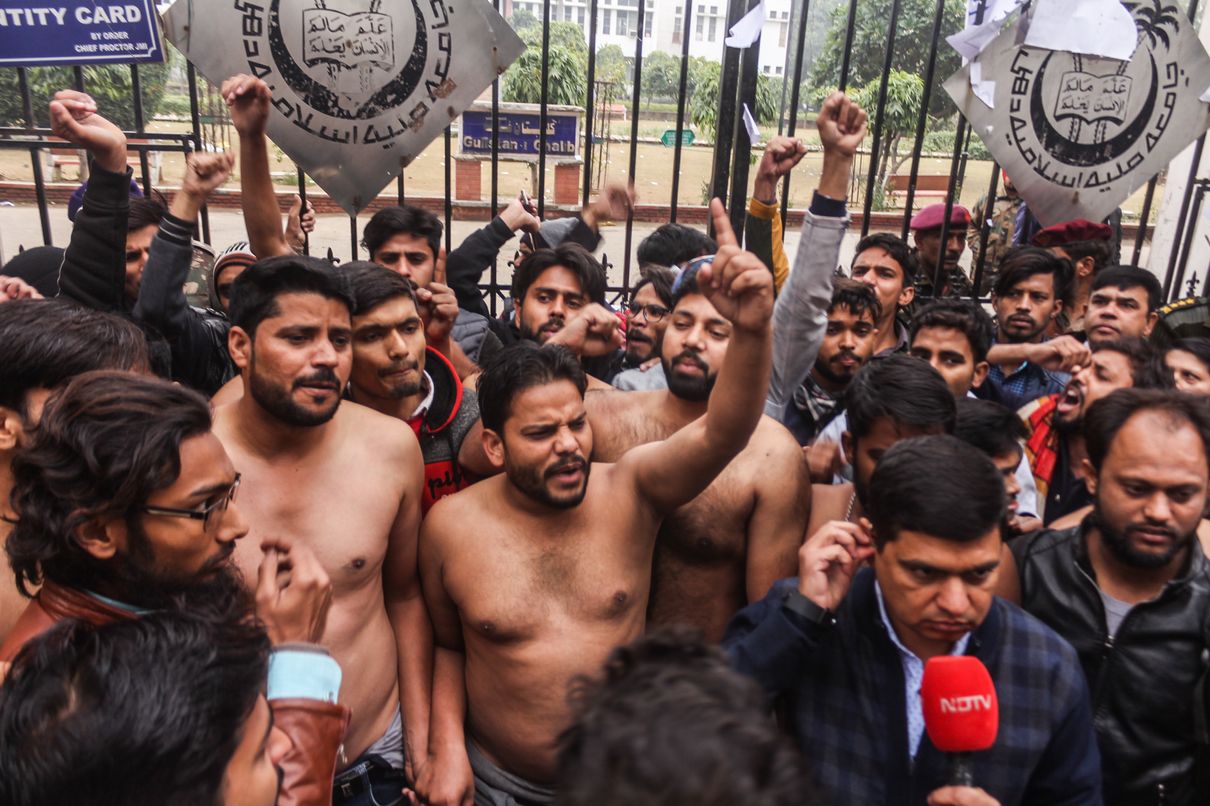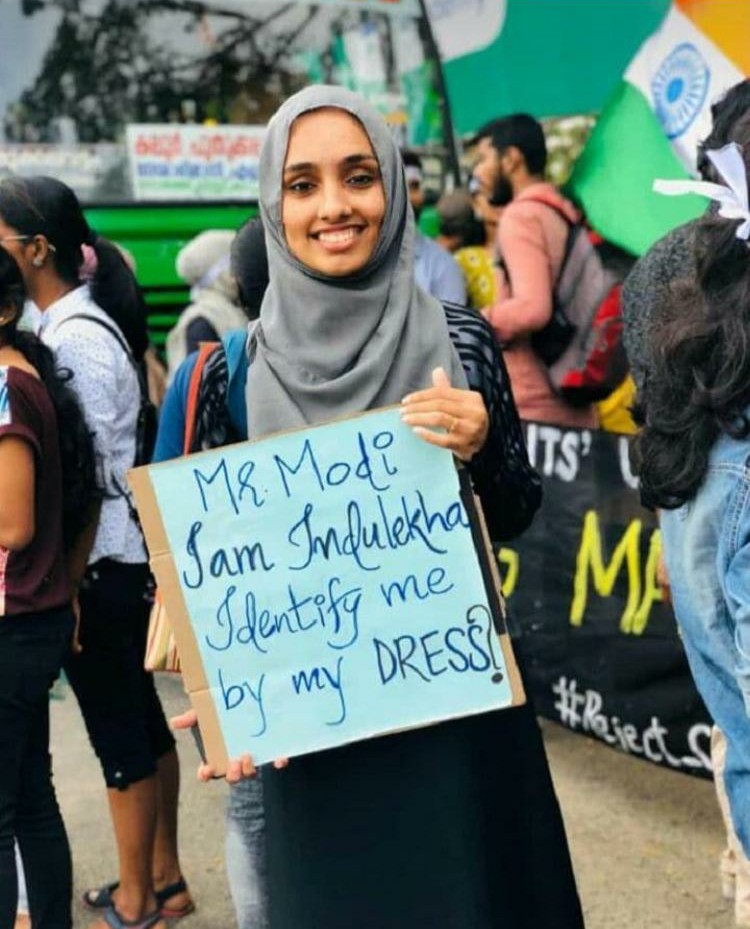
As thousands of people are taking to the streets to raise their voice against the controversial Citizenship (Amendment) Act, 2019, students are devising innovative and unique ways to dissent.
In response to Prime Minister Narendra Modi’s comment on identifying protestors by their clothes, many students recast the notion in their own way.
A student at Jamia, was among the many protestors who sat shirtless to register their protest against the police crackdown in Jamia on December 15, 2019, spoke to The Wire.
“Agar kapdo se hi pahchaanna hai to use pehchaaniye jisne goli chalayi (if you have to identify people by their clothes, identify the person who shot fire at students),” he said, while referring to the firing incident at Jamia on January 30, 2020 – the day when a 19-year-old opened fire at protestors and injured a student.

Jamia students go shirtless to protests against the police crackdown on campus. Image credit: Md Meharban.
His friend Hashim Ali also participated in the protest taking off his shirt.
“Hum kapde hi nahi pehnenge to aap pehchaanoge kaise? (If we will not wear any clothes, how will you identify us?),” he said.
There have been several instances in the past, when nudity was used as a symbol of resistance.
In 2004, twelve women in Manipur stripped to protest against the Armed Forces Special Power Act after the paramilitary soldiers allegedly gang raped Thangjam Manorama.
Similarly, in January 2019, members of the Krishak Mukti Sangram Samiti – a peasant organisation based in Assam – staged a nude protest against the Citizenship Amendment Bill, after it was passed in the Lok Sabha.
Now, in 2020, besides sitting shirtless, protestors are dressing up in attire associated with different religions.
Twenty two-year-old Aman Pandey, is among them.

Aman Pandey, wearing a skullcap and a vermillion on his forehead, at Kolkata candle march.
“It was a symbolic response to the people who want to identify protestors by their clothes,” says Pandey, who hails from Kolkata and studies at Jamia Millia Islamia. Modi’s comment, he says, has indirectly encouraged Islamophobia in the country.
Pandey’s parents, who oppose the CAA and National Register of Citizens (NRC), have advised him to stay silent after the Jamia incident. He participated in a candle march from Presidency College to the Esplanade metro station in Kolkata.
Aaliya, who works as an illustrator and is a postgraduate from Falmouth University, UK, says these protests question those in power.
“It doesn’t come with anger alone. It also comes with a sense of humour, which scares authority. When they become objects of ridicule, their power is destabilised at a much deeper level,” she says.
Eighteen-year-old Indulekha Partan, a law student at Ernakulam Government Law College, also used her attire to protest.
On December 18, 2019, she attended Kochi’s anti-CAA protest wearing a hijab and a burqa. She calls the CAA a “clear violation of Article 14 and the basic structure of the Constitution” and says that Modi’s comments prompted her to step out and protest for the first time.

Indulekha at an anti-CAA protest in Kochi, Kerala.
Besides donning hijabs and skull-caps, non-Muslims are exploring Islam in other ways too.
Srijan Chawla, a journalism student at Jamia Millia Islamia, observed Roza on January 10 and broke her fast with some Muslim friends.
“In the past month, I was made to feel very conscious of my Hindu identity. I didn’t feel it before,” she says. ” I didn’t do it [keeping roza] to signify anything to anyone, but for the power I felt within.”
The act, she says, is her way of dissent.
With anti-CAA protestors increasingly becoming the target of violence and crackdown, simple protests like these are helping build a long-term commitment to the cause.
Salman Saleem and Komal Wadhwa are postgraduate students at AJK MCRC, Jamia Millia Islamia
All images are provided by the author
Featured image credit: Md Meharban





